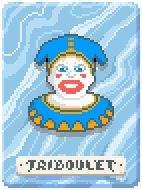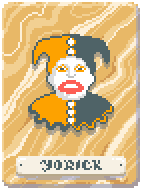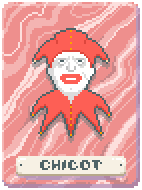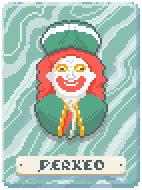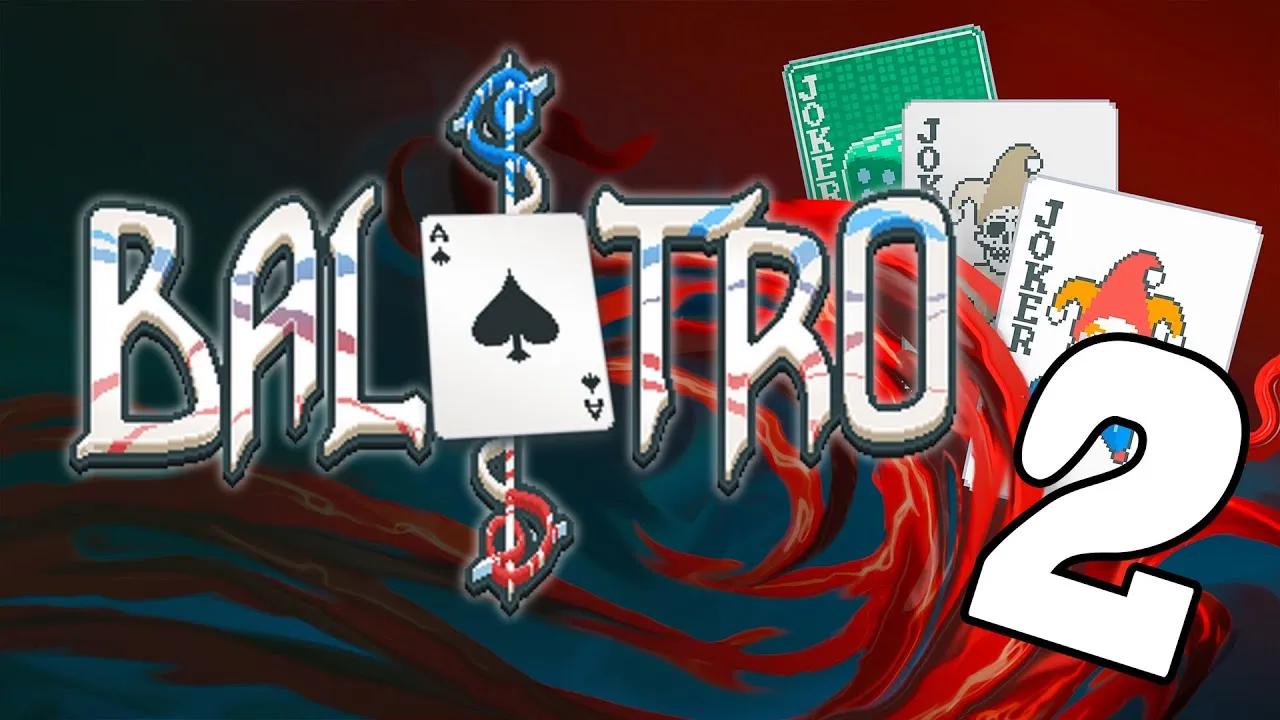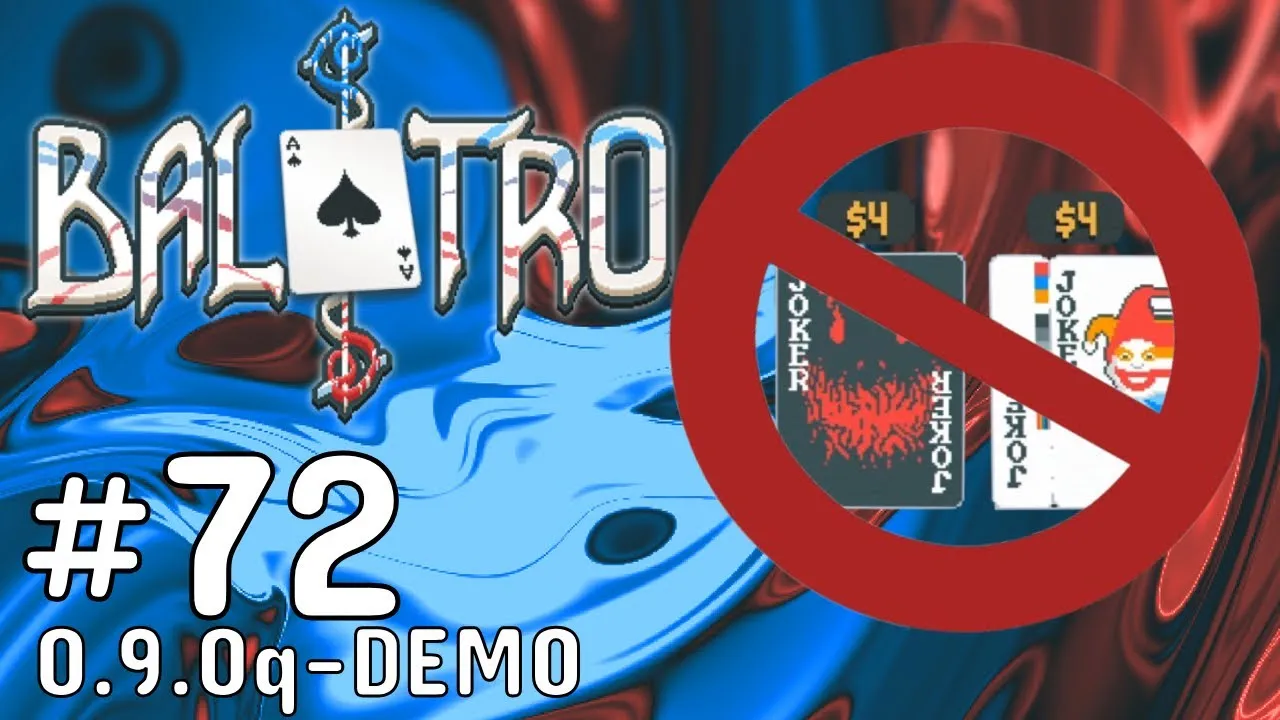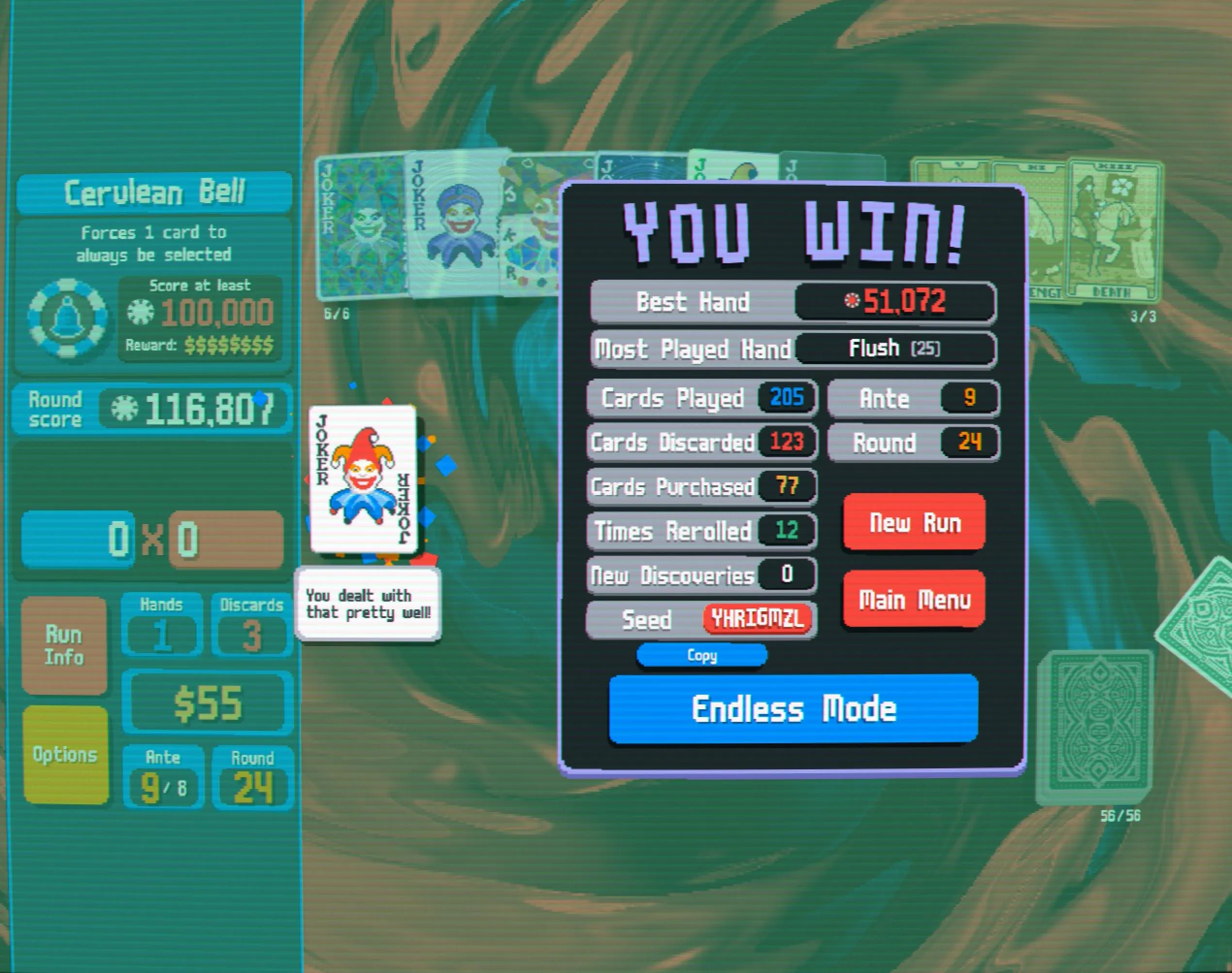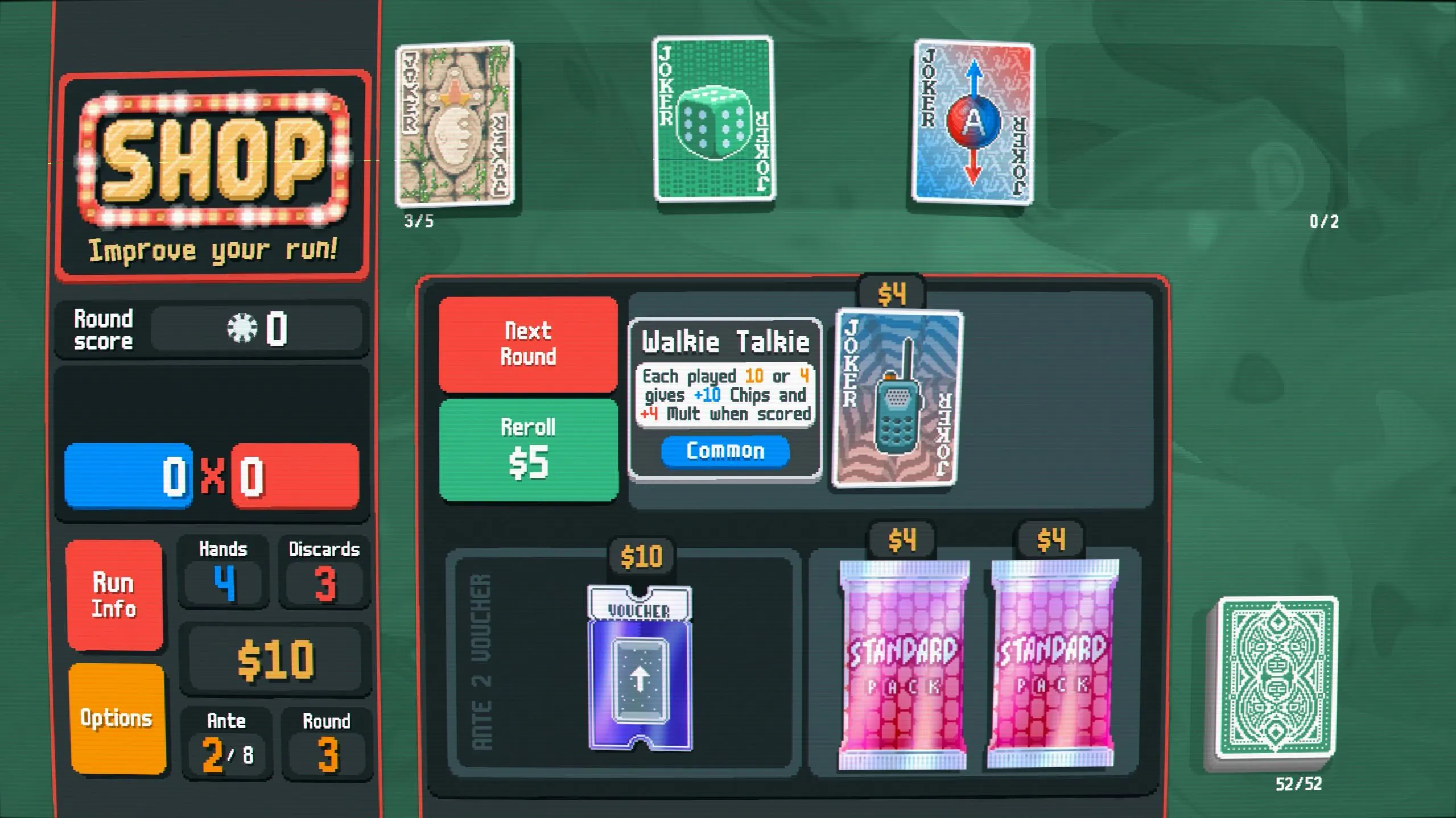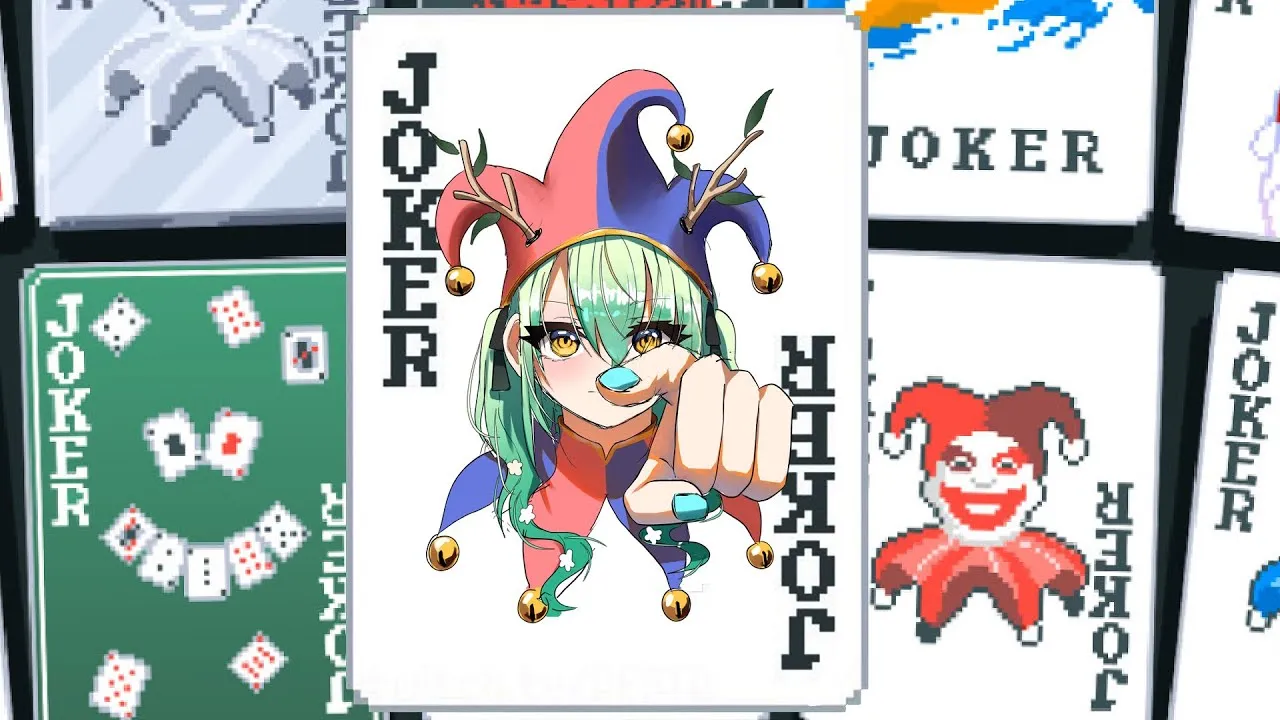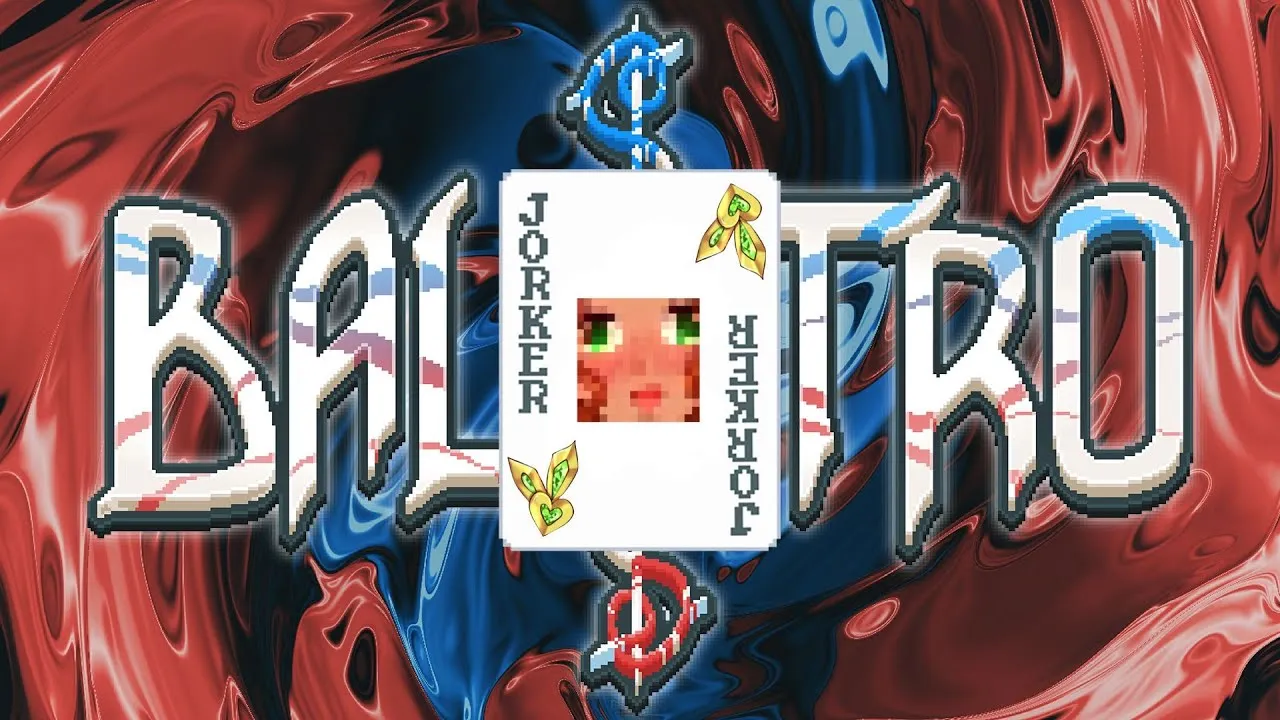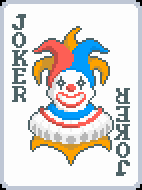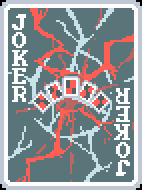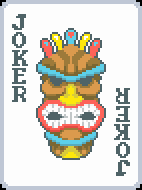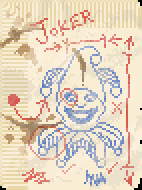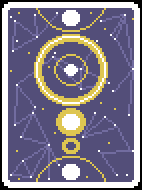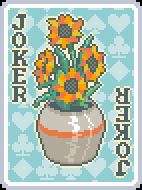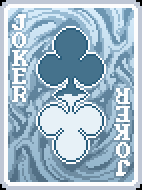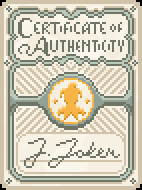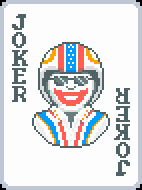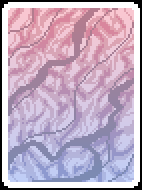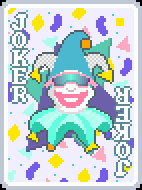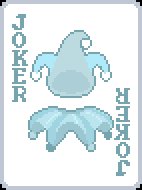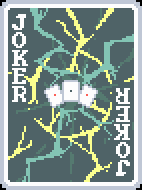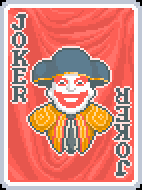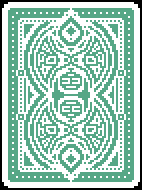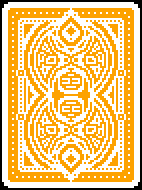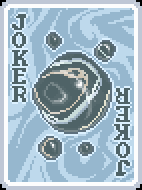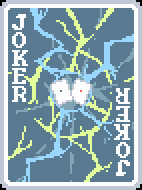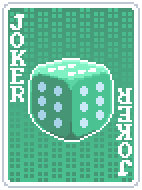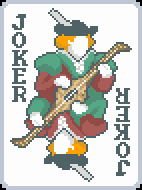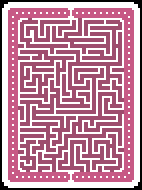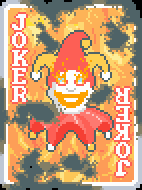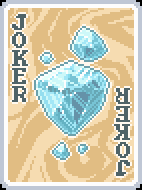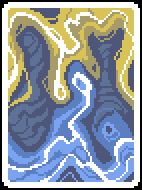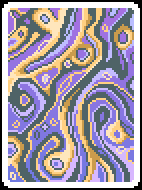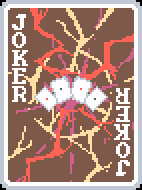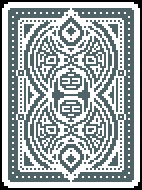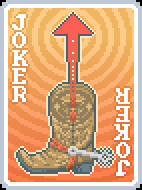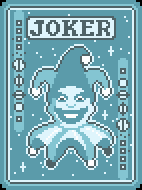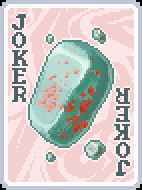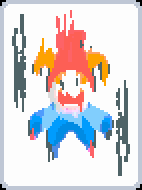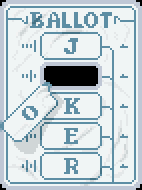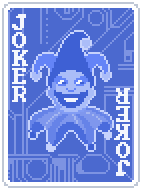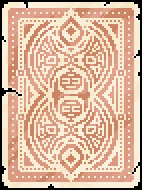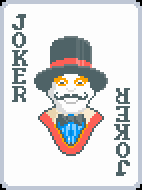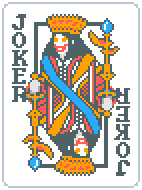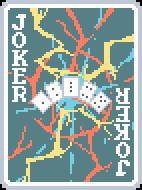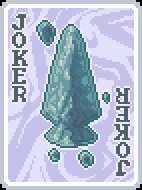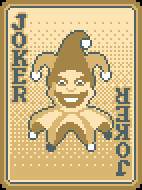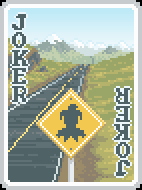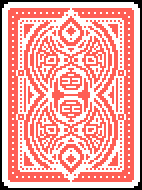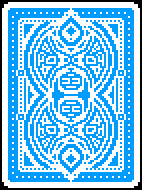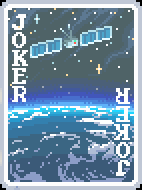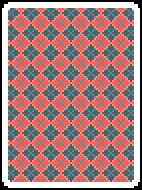Debunking Asymmetry
Asymmetrical forces have always been a dominant design pattern for videogames. In this article, I ask why that is, and suggest that we may actually be better off shooting for symmetrical designs. Asymmetrical forces have always been a dominant design pattern for videogames. In this article, I ask why that is, and suggest that we may actually be better off shooting for symmetrical designs. Before I go about with the debunking, I should first list my general problems with asymmetry.
- It forces the player to “play designer”. When you have to make a non-strategic choice that has strategic ramifications, it creates tremendous cognitive dissonance. “Should I pick the thing that I think is the best, or should I pick the thing that seems like it would be the most fair, or should I pick the thing that seems the most exciting, or should I just pick the thing randomly?” Ultimately, the player is not free to simply play the game – they must first make decisions about what the game will be. Other configuration options like choosing stages/maps/item settings/timings make the problem even worse. In these situations, the player is under tremendous pressure to skirt some weird line between “doing what’s best for the game” and “doing what’s best for me as a player who wants to win”.
- It tends to cause games to be vastly less elegant than they otherwise could be. If you make a fighting game with just 4 characters, what you’ve actually done is create ten different games. Each matchup is a distinct game. For this reason, as well as others, I can only think of a few asymmetrical games that don’t have a ridiculous amount of content. Most asymmetrical games – fighting games, card games, real-time strategy games, etc – have truly insane amounts of content. At the time of this writing, League of Legends has a whopping 115 champions, each with four unique spells and a passive ability, not to mention unique stats. Having to step into a game like that, or even a fighting game with 30 characters, is crazy. It’s way too much stuff to have to learn, it causes individual elements to lose contrast, and…
- It generally causes games to be vastly harder to balance than they should be. In videogames, instead of pushing towards “balance”, we instead push towards “an acceptable tier list“. This is to say that there shouldn’t be anyone in God tier(characters so powerful that you can only ever justify playing them), and there shouldn’t be anyone in trash tier (you can NEVER justify playing them because they suck). But we accept everything else. It’s just peachy that some characters are flatly better than others, and the reason we’ve accepted this is because with as much information as we cram into these systems, we just can’t really do much better than that. In fact it’s a tremendous feat that we’re able to get a game with 30 characters to not have a trash/god tier.
- It constrains dynamics. Great games, as they are being played, emerge into a massive beautiful and mysterious web of dynamics – a resource is expanding over here, which is tied to some other resource over there, which is dependent on player one taking this action right now, which is possible because he took another action six turns ago, which in turn opens the door for a huge resource gain for player two three turns from now. Because of this, only a few turns/seconds into most good games, you already have naturally emerging asymmetrical forces at work. You can think of a player’s set of powers and resources halfway through the game as a “character” that grew out of the system.Videogame-style asymmetry, however, gives players a “quick start”, starting you with “forced” asymmetry that you chose before the game even began (i.e., it’s not a strategic decision). The cost is that the game dynamics are constrained the entire game by a decision you made before the game even began, and they’re forced, not emergent. That emergent character is now constrained by something you chose before the game even began.
- It’s a smokescreen, making it harder for designers to really judge the quality of their system, which results in worse systems. Videogame asymmetry makes a somewhat boring system seem more interesting. If Street Fighter 2 only had one character, Ryu, then I think that the designers would realize that they probably need to make the system itself a bit more elastic and interesting. But, since there is a forced-dynamic obfuscating the system itself – now it’s Ryu versus Zangief, I wonder how those two things push up against each other! – it’s harder to see that the system itself is kind of flat.Further, there’s a psychological trick that asymmetry pulls on you. While you’re playing as one character, there’s a bit of a grass-is-greener thing, where you imagine other characters to be more interesting. Not consciously, but in the back of your mind, that “wonderment” at not just seeing other characters in action, but how they will interact with THIS character, is compelling in a somewhat cheap way. Even if you’re just going to choose Ryu and never play anyone else, you’re still going to play against other characters, so this effect takes place.I think that the above psychological effect is highly noticable with the card game Dominion. While Dominion isn’t asymmetrical in the way I’ve been describing, it does have a “customizable” card market. You swap cards in and out, and during the game, you get to combine them and see all kinds of effects happen when they’re put together. Eventually, you reach a point where you’ve kind of combined everything, and then you either need to get an expansion, or quit. So in a sense, asymmetry (or customizable-ness) ends up really just being a strange kind of “asset tour”. You want to see all of the things.
- It’s just not necessary and therefore shouldn’t be used, which I intend to prove throughout this article. It dramatically increases the cost of production, and needlessly decreases elegance. One quick and simple way to put it is this: if asymmetrical forces are necessary for your game to work, then you should disable mirror matches. If asymmetrical forces aren’t necessary, then you shouldn’t include them.
The Status Quo on Asymmetry
Based on my experience and research, the generally agreed upon opinion right now is that Videogame asymmetry is almost always a “plus” in game design. Indeed, it has many qualities that seem highly desirable, so this point of view isn’t surprising, even if it’s ultimately mostly wrong. We can begin with one of the world’s most vocal champions of asymmetry, game designer David Sirlin, who has been striving to bring videogame-style asymmetry to boardgames with his games like Puzzle Strike and Yomi, as well as his game Flash Duel, which is essentially Reiner Knizia’s En Garde, but with asymmetrical characters added. From his Sirlin Games “manifesto” page: “It’s boring when every player starts with the same set of moves. All my games are asymmetric, meaning you can choose from 20 characters, each with a different set of moves and powers.” While I have huge respect for David Sirlin, much of his writing, and his ability to design games (go check out Puzzle Strike if you haven’t already), the first line seems to me like an obvious over-statement. He can’t really be saying that every non-asymmetrical game is boring, can he? Keep in mind, I’m certainly not saying that “all games with asymmetry are boring”, or anything even close to that. Only that it’s less than ideal and has problems. Most designers don’t go quite as far as to say that symmetrical games are boring, however they do generally echo the idea that asymmetrical games are “less boring”. Jon Shafer wrote an article for Gamasutra about asymmetry, which mostly echoes David Sirlin’s point of view, although makes a few caveats saying “not all games can be asymmetrical”, with the implication being that if they could all be asymmetrical, they would of course be better for it. Or listen to this Three Moves Ahead podcast episode, wherein Troy Goodfellow, Tom Chick, and Julian Murdock muse about asymmetry in games. While they don’t get too deeply into theoretical specifics, the mutually agreement that “asymmetry is better” is clear throughout. Interestingly, the most telling moment is at one point when one of them said, “Last year we had Halo Wars which was asymmetrical, and End War, which was symmetrical, and End War was… just a better game. Which surprised me.” This was followed by about two or three seconds of dead air, before someone chimed in to essentially change the subject. Basically, it’s obvious to all of them here that even if End War really was better, that’s obviously just some fluke, some bit of meaningless trivia. It’s surprising that a symmetrical game would be better than an asymmetrical one! So overall, the status quo point of view is clear: ASYMMETRY GOOD. On why asymmetry is good, well… that’s a bit more fuzzy, although there are certainly some given reasons. I will now go through some of the specific reasons and debunk them. They are listed (roughly) in order of how common the defenses are, with Defense #1 being the most common defense.
Defense #1: Variety / Replay Value
I’m coupling “replay value” with “variety” in with this section, because I think they’re very closely related. Essentially the argument here is, if a game doesn’t have asymmetrical forces, then it’s going to get stale after awhile, because you can’t try the game from a new angle with new powers or whatever. Or put another way, if a game does have asymmetrical forces, it’s much more likely to have increased variety.
It’s easy to understand this claim. If you are playing Street Fighter, and you’re starting to get bored playing as Ryu, well, you could always switch to Blanka, or E. Honda, or any other character, and get a different experience.
The problem is that this is a short-term solution that comes with all of the negative effects that I listed in the “problems” section of this article. But the real myth here is that variety / replay value can only come from asymmetry. You can create – and people have created – symmetrical games that are every bit as replayable, varied and interesting as any StarCraft or Street Fighter, but which is also way more well-balanced.
A quick example would be the great boardgame Puerto Rico, which quickly unfolds into natural, emergent asymmetry. Puerto Rico uses a deep, interesting system that unfolds into a wide array of interesting outcomes, combined with some very light input randomness, with nothing even close to resembling videogame asymmetry.

Defense #2: “Flavor”
There’s much talk about flavor – about different asymmetrical forces “feeling” different in a significant way, and the assumption is that this can only be achieved through asymmetry. While I agree that it certainly is achieved through well-built asymmetry, my point would simply be that any great game, symmetrical or asymmetrical, would already provide a wide range of flavors for different strategies. For instance, this bit from Jon Shafer’s Gamasutra article on asymmetry:
The Zerg and Terrans could maintain their excellent art direction, but if they had basically the same units with the same abilities, only with different coats of paint, it would no longer feel like StarCraft. The Zerg are an organic swarm – their units should be more numerous and should have unique abilities like burrowing out of the ground.
So, “feel” also seems to be a major defense, and it’s not just “thematic” feel, but also mechanical. I agree that the Zerg do mechanically feel different to play than the Protoss, and that’s of value. The question is, can that kind of “feel” only be captured with asymmetry?
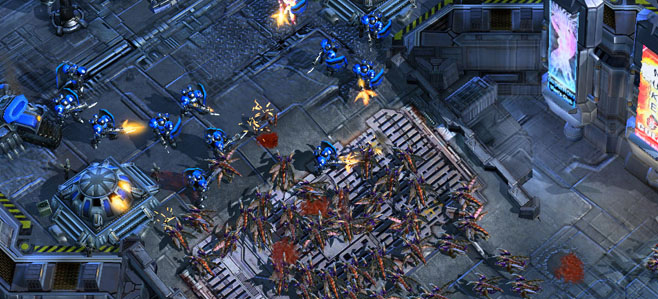 Unless you are speaking purely thematically, I think it’s without doubt that asymmetry is not actually needed to have this kind of “different feel”. Good symmetrical games have enough strategic space so that players can exhibit vastly different playstyles. For instance in the game of Go, playing more defensively and shooting for influence (a loose spreading of many weak stones around the board, often closer to the center) feels very different than a player who is more concerned with winning fights now and grabbing territory (and those are just two obvious examples; a more serious Go player can give you better ones, I’m sure).
Even if you look at an asymmetrical game such as StarCraft, you can already have vastly different playstyles even in a mirror match. Maybe in a Terran vs. Terran match, one player chooses to put a lot of pressure on with harassment, or another playstyle could involve using lots of air units, or rushing.
A great example of how to do non-asymmetrical flavor is something like heroes in Warcraft III. If the game was only Human vs. Human, there would still be plenty of emergent asymmetry in hero choice. If you get an Archmage first, and I get a Mountain King, that’s a significant difference that really feels different. If you get a second hero and I don’t, that makes it even more different. And this game wasn’t even designed to be single-matchup; imagine a game like that that was.
In just the way that these designers are talking about how different races or characters need to have a strong sense of “flavor”, taking on different strategies also needs to have a strong sense of flavor – needs to feel different. Actually, I think that the “feeling different” is just a byproduct of them being different, which is obviously important. So if your game has strategies that really are different, then why do you need asymmetry?
The only remaining answer is “to support the theme/fantasy” – to make it feel like that scene from Starship Troopers. Obviously, this is not a game design motivation, so it can’t be used to defend asymmetry’s role in ideal game design.
Unless you are speaking purely thematically, I think it’s without doubt that asymmetry is not actually needed to have this kind of “different feel”. Good symmetrical games have enough strategic space so that players can exhibit vastly different playstyles. For instance in the game of Go, playing more defensively and shooting for influence (a loose spreading of many weak stones around the board, often closer to the center) feels very different than a player who is more concerned with winning fights now and grabbing territory (and those are just two obvious examples; a more serious Go player can give you better ones, I’m sure).
Even if you look at an asymmetrical game such as StarCraft, you can already have vastly different playstyles even in a mirror match. Maybe in a Terran vs. Terran match, one player chooses to put a lot of pressure on with harassment, or another playstyle could involve using lots of air units, or rushing.
A great example of how to do non-asymmetrical flavor is something like heroes in Warcraft III. If the game was only Human vs. Human, there would still be plenty of emergent asymmetry in hero choice. If you get an Archmage first, and I get a Mountain King, that’s a significant difference that really feels different. If you get a second hero and I don’t, that makes it even more different. And this game wasn’t even designed to be single-matchup; imagine a game like that that was.
In just the way that these designers are talking about how different races or characters need to have a strong sense of “flavor”, taking on different strategies also needs to have a strong sense of flavor – needs to feel different. Actually, I think that the “feeling different” is just a byproduct of them being different, which is obviously important. So if your game has strategies that really are different, then why do you need asymmetry?
The only remaining answer is “to support the theme/fantasy” – to make it feel like that scene from Starship Troopers. Obviously, this is not a game design motivation, so it can’t be used to defend asymmetry’s role in ideal game design.
Defense #3: “Personal Expression”
The idea here is that players find a character that matches their “playstyle”, which we are to understand already existed on some level before the player ever played the game, and this game, being asymmetrical, allows them to express themselves more truly because of this. So for instance, a very aggressive or impatient player might find that a rushdown character allows him to play the way he wants, or a person who is generally pensive might prefer a more defensive character. My counter to this one is that I simply don’t even accept that this is really a thing. I do not think that a person necessarily comes to a game with a “playstyle” before they even know how to play. It does not make sense that a person would have such a thing. It needs to be demonstrated that this actually exists. At what point does it develop? Was it there before they ever played? I have a hard time believing that I could have a natural playstyle in some strange abstract game that I haven’t played or even heard of yet. I suppose I could see it happening a bit for a player in two games that are similar, like if they went from Street Fighter to Super Smash Brothers or something, but hopefully going forward, fewer games will be so similar to each other. But even if you do somehow “inherently” have a “rushdown personality” or something, a great game should have a wide range of creative strategy that allows you to express that. Finally, though – even if this phenomenon really did exist, it conflicts with getting good at a thing anyway. If you’re trying to play optimally, you can’t just keep doing what you “felt like doing before you even played the game”. Playing games is about the creative search for more optimal moves, and good players know to try to ignore their own biases and that often times, getting good involves doing the counter-intuitive.
Defense #4: “More is Better”
This is different from variety, in that it doesn’t actually care about the game experience at all. This simply means, on the back of your box you can brag about having “50 characters!!!!“, which can seem like a good thing to many people.
By “many people”, I am mostly referring to young children, people trying to market to young children, and adults with the minds of young children. I don’t think most decent game designers give this much credence, since it’s pretty obviously stupid.
At least, on paper. I think that after 30 years of the more-is-better arms race, a lot of totally solid designers – myself included – have had their perspective a bit warped in terms of amount of content. Videogames are expected to have a certain amount of content to be “a real game”, and asymmetry is often one of the ways that designers fulfill this quota, many times, unwittingly. I think we all have to take a serious self-assessment of the damage that living through the past 30 years has done to us. Especially since so many of us played Magic: The Gathering as kids. That can’t have had good effects.
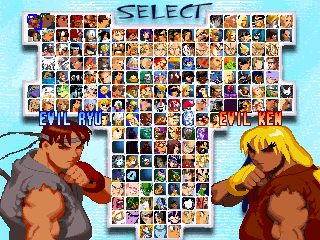 Mugen is mostly a gag game, thank god.
Mugen is mostly a gag game, thank god.
Defense #5: “Easier to Learn”
I also listened to a recent Game Design Roundtable podcast episode that featured Mr. Sirlin, where he mentioned that in asymmetrical games, “the player really only has to learn one side”, suggesting that that games are easier to learn, since you technically only have to learn one character to “play”. I put the words “play” in quotes, because if you don’t know the character you’re playing against as well, then you’re really just inputting moves into a black box and it’s spitting out a win or a loss – you can’t possibly understand what you’re doing or form strategies. And unless you “restrict the game to 1 or 2 characters”, in which case the game isn’t really asymmetrical, you actually have to learn all of the characters to really play. For example, I’ve been playing a bit of League of Legends recently, largely for research purposes, but also because I’m pretty desperate for a decently well-made modern online competitive game. The claim that I only have to learn one character in this game is obviously pure trash – I’m trying to play that way and it isn’t working out so well. I’m frequently killed by a character ability that I had no idea existed, or I waste a key spell on a character that has a way of getting out of it, etc. Asymmetry lets you learn how to “control your character” perhaps more quickly, but “controlling your character” and “playing the game” are two different things, the latter involving “forming strategy” which is only possible if you know the other characters’ abilities.
Defense #6: “Metagaming”
I played a ton of Warcraft III back in the day, and I can tell you: arguing about different races, heroes, and units is way more fun than actually playing the game. I think that this statement is true or close to true for a lot of popular online multiplayer videogames. Arguing about “tier lists” and such probably takes up at least as much time as does playing the game for many players. Then there’s stuff like “popular strategies”, where some build or set of tactics becomes well-known and copied throughout the world, and then people start to develop counter-strategies, which themselves become popular, and so on. This is a pretty cool thing, for sure, and an important part of a game’s “life”. However, this isn’t at all a unique thing to asymmetrical games. Research professional / high-level Go replays and commentaries online and you’ll see that it’s got all the same stuff going on as does League of Legends or StarCraft. There’s just one thing that comes to mind that asymmetrical games provide for a “metagame” that symmetrical games don’t, and it’s a really ugly, horrible quality: “counter-picking”. You see, not only are some characters squarely better than others in asymmetrical games, but some have significantly high win rates versus specific characters. So, you can “counter-pick” your opponent by choosing a character that is better than that character. This results in all kinds of weird, ugly meta-game rules, starting with a blind first pick, and then stuff like “the loser gets to change character and the winner can’t”. So, this bouncing back and forth of picking, counter-picking, and counter-counter picking is actually optimal play. Horrible.
Benefits
I’m not saying you should never use asymmetry in your games. There are some real, tangible reasons to use asymmetry, it’s just that almost none of them are good game design reasons. However, I’m willing to accept that there could be some good game design reasons out there; it’s just that none of them have been used yet. So here are some of the not game design related, but still good reasons to use asymmetry. For one thing, asymmetrical forces can be really helpful in building a world/theme/setting, which sometimes can be of great value to a company that’s trying to get people attached to its products. There may be some very technical thing that’s specific to your game system that no one has really seen before. Some have talked about using characters as difficulty modes, which is a bit weird, but could work in a party game or something. Asymmetrical forces could be used to create a smokescreen for a lackluster game. Let’s face it: most games we make just aren’t all that great. Sometimes having a “character select” might be just the sauce you need to get people to play your game even for a little while. They played your game for a couple weeks, you made a sale – everybody’s happy. Or, you just want to. You, like me, have a great romance for asymmetrical forces, having been brought up in a world that romanticizes them. I understand that, and there’s a really good chance that I’ll design an asymmetrical game or two in my lifetime. Actually, wait – I made 100 Rogues, which has asymmetrical characters, didn’t I? Huh. And the funny thing is, I didn’t understand any of this back in 2008 when I started working on that game. So I’m not saying don’t make asymmetrical games. I just want people to understand the costs and benefits of doing so. Oh, and if you have any good counter-points, I would love for you to convert me to a pro-asymmetry position. This article was originally posted at my blog. Keith Burgun Blogger See more from Keith Burgun
このサイトはコレクションに関連する記事のみを収集しています。元のテキストを表示するには、以下のリンクをコピーして開いてください:Debunking Asymmetry

